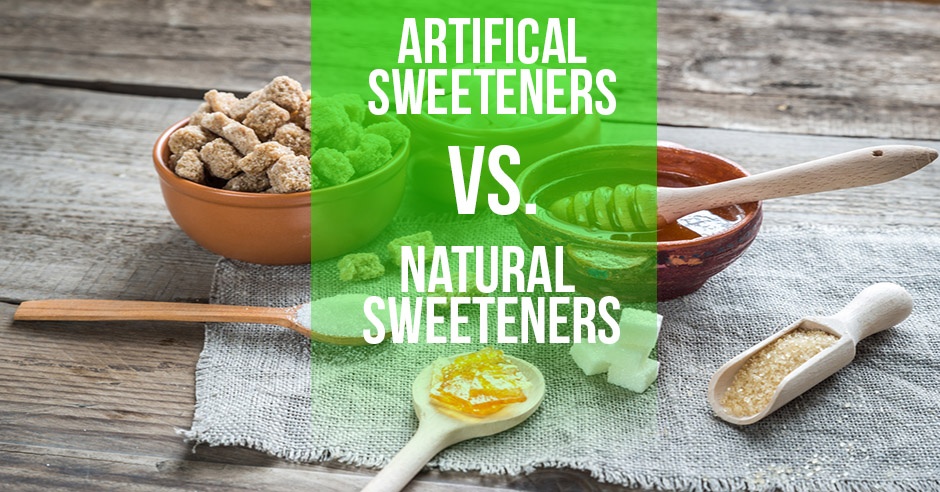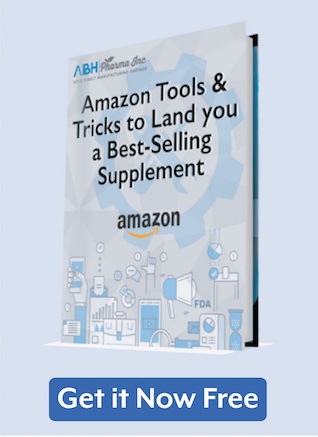Andrea is thinking about switching from a supplement with natural sweeteners to a supplement with artificial sweeteners.
She has been trying to lose that last ten pounds for years now through starvation diets and torture at the gym, and she is hoping that simply switching from sugar to the artificial stuff will be an easy way to trim down.
Andrea is also hoping that switching from a supplement with natural sugar to a sugar substitute will reduce her husband’s risk of heart disease as he too is trying to lose weight.
She is not really sure, though, about the differences between artificial sweeteners and natural ones in supplements though.
Andrea is not alone when it comes to wondering whether switching to a supplement with artificial sweeteners is a good choice. Many people think sugar substitutes are superior because artificial sweeteners are well, artificial.
People that use supplements for weight loss want somehting natural in their product because of the healthy lifestyle they are trying to switch over to.
In an effort to reduce the risk factors for heart disease, specifically obesity, metabolic syndrome and diabetes, the American Heart Association (AHA) and American Diabetes Association (ADA) cautiously support the use of artificial sweeteners in place of sugar in supplements and vitamins.
Other scientists and consumers worry artificial sugar can cause cancer or other diseases. Further reading and research sheds light on the differences between artificial sweeteners and their natural counterparts.
About Artificial Sweeteners
Food scientists created artificial sweeteners for people who cannot eat sugar or who want to shave calories from their diet. Most of the low-calorie and dietary supplements that you and Andrea buy contain artificial sweeteners.
Scientists use chemical processes to create all types of artificial sweeteners to use in supplements. The products they make are significantly sweeter than the white powdered sugar you buy at the store, also known as sucrose.
The U.S. Food and Drug Administration (FDA) has approved several artificial sweeteners, also known as high-intensity sweeteners: saccharin, aspartame, acesulfame potassium (Ace-K), sucralose, neotame, and advantame.
The agency also recognizes products made from Luo Han Guo, or monk fruit, and from the stevia plant as generally safe for human consumption.
There are subtle but important differences between the different sweeteners, specifically in their sweetness and uses. Aspartame, also known as Splenda or NutraSweet, is 220 times sweeter than sucrose, and is used more in beverages than in baking than health and wellness products.
Sucralose, sold under the brand name Splenda, is 600 times sweeter than sugar and can be added at the table or found in diet food, diet drinks, chewing gum, fruit juices and more.
Food scientists create each of these artificial sweeteners through different chemical processes.
They make aspartame from two amino acids, for example, and create sucralose by replacing three hydrogen-oxygen groups with different atoms.
Neotame contains the same two amino acids as aspartame, aspartic acid and phenylalanine, but its chemical structure makes it about 40 times sweeter than aspartame and about 8,000 times sweeter than sugar.
The body deals with each of these sweeteners in a slightly different way. It breaks down aspartame into its two component amino acids, aspartic acid and phenylalanine, which are absorbed into the body and later excreted.
The body also breaks down Neotame into its core components, but only absorbs a small amount of one of these components and excretes the rest.
The main difference between natural sugar and artificial sweeteners in supplements is that the sweeteners contain fewer calories, so they do not make your blood sugar rise.
High blood sugar levels increase the risk of type-2 diabetes heart disease. Excess calories lead to weight gain, which also increases the risk of those diseases.
Andrea's Concluesion on Artificial Sweetener VS Real Sugar
Like many Americans, Andrea worries about the safety of artificial sweeteners because she recalls hearing old research about these sweeteners causing cancer in lab rats or other serious health problems.
What Andrea may not know is that subsequent research debunks earlier studies, and that most scientists agree that sugar substitutes are safe, especially when used in moderation.
Using artificial sweeteners can be an excellent way to lose weight and control blood sugar, both of which can reduce the risk of heart disease, cancer and other serious health hazards, but can only be helpful with used in conjunction with a sensible diet and exercise plan.
Some people lull themselves into believing replacing sugar with artificial sweeteners allows them to gorge on junk food and skip the gym.
As with some foods and many manmade products, artificial sweeteners may not be the right choice for everyone.
Someone with a healthy weight, good blood sugar level and average risk of heart disease may prefer the taste of sugar, for example.
Another person with a specific health condition, such as phenylketonuria (PKU), may not be able to consume aspartame because their body cannot break down the amino acids used to make the product.
One of the biggest problems with using artificial sweeteners is that, because they are so much sweeter than natural sugar, they actually lower the consumer’s sensitivity to sweetness.
Desensitization to sweetness makes healthy foods, such as fruits and vegetables, seem unappetizing in comparison.
Calories removed from the diet through artificial sweeteners may creep back in the form of refined carbohydrates and low-quality fats as the consumer craves satisfying foods.
There is also some concern that using artificial sweeteners confuses the brain in a way that leads to overeating. Because artificial sweeteners deliver such a large amount of sweetness, the brain expects a huge amount of food.
When it does not get the large amount of food it expected, the brain tells the stomach to growl in demand of another meal.
After doing a little investigation into the differences between artificial sweetener vs sugar, Andrea has decided to move her family towards a healthier diet by switching to artificial sweeteners.
Even with the drawbacks of desensitization, choosing artificial sweeteners can help Andrea and every member of her family lose weight and maintain good health.
At the end of the debate over the artifical sweetner dangers the consumer just wants to feel and look healthier.







